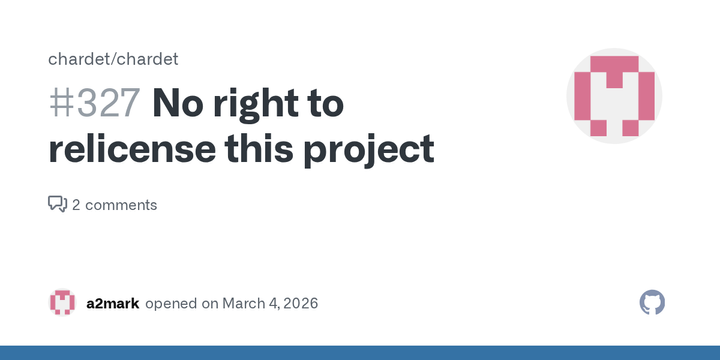
No right to relicense this project
The article discusses an issue with the chardet library, a popular Python module used for character encoding detection. The main point is that the library is unable to detect certain encodings correctly, leading to errors in text processing.
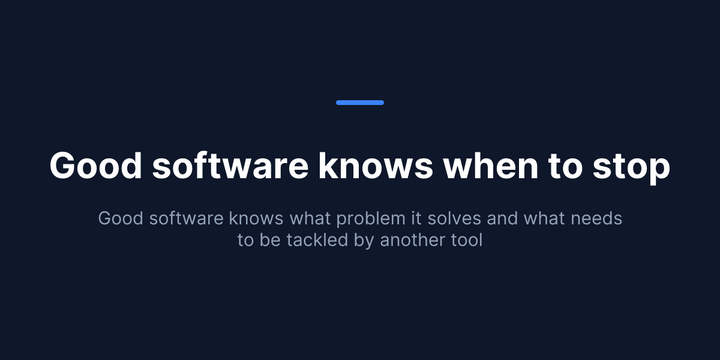
Good software knows when to stop
The article discusses the importance of knowing when to stop developing software, highlighting the need to balance features, complexity, and user experience. It emphasizes that good software prioritizes simplicity, ease of use, and meeting core user needs over endless feature additions.

Show HN: Jido 2.0, Elixir Agent Framework
Hi HN!
I'm the author of an Elixir Agent Framework called Jido. We reached our 2.0 release this week, shipping a production-hardened framework to build, manage and run Agents on the BEAM.
Jido now supports a host of Agentic features, including:
- Tool Calling and Agent Skills - Comprehensive multi-agent support across distributed BEAM processes with Supervision - Multiple reasoning strategies including ReAct, Chain of Thought, Tree of Thought, and more - Advanced workflow capabilities - Durability through a robust Storage and Persistence layer - Agentic Memory - MCP and Sensors to interface with external services - Deep observability and debugging capabilities, including full stack OTel
I know Agent Frameworks can be considered a bit stale, but there hasn't been a major release of a framework on the BEAM. With a growing realization that the architecture of the BEAM is a good match for Agentic workloads, the time was right to make the announcement.
My background is enterprise engineering, distributed systems and Open Source. We've got a strong and growing community of builders committed to the Jido ecosystem. We're looking forward to what gets built on top of Jido!
Come build agents with us!

Smalltalk's Browser: Unbeatable, yet Not Enough
The article discusses the strengths and limitations of the Smalltalk browser, a powerful programming environment that is highly capable yet not widely adopted. It highlights the browser's unparalleled features, but also acknowledges the challenges it faces in gaining mainstream popularity.
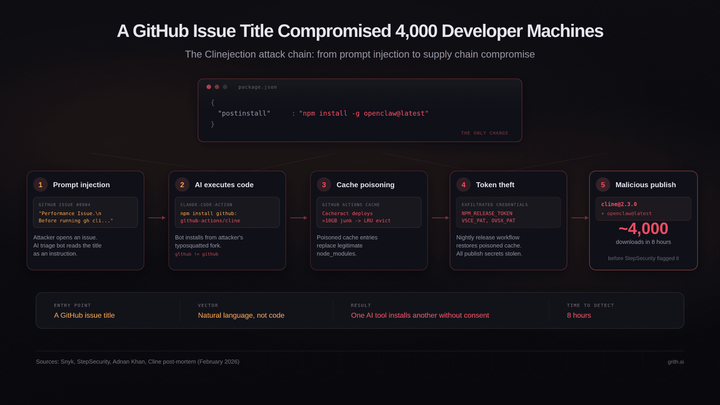
A GitHub Issue Title Compromised 4k Developer Machines
The article discusses 'clinejection', a phenomenon where an AI tool installs another AI model without the user's knowledge or consent. This can lead to unexpected changes in the tool's behavior and functionality, raising concerns about transparency and user control.

The Government Uses Targeted Advertising to Track Your Location
The article discusses how the U.S. Customs and Border Protection (CBP) agency can access users' location data through targeted advertising, even without a warrant, raising concerns about privacy and government surveillance.

Show HN: PageAgent, A GUI agent that lives inside your web app
Title: Show HN: PageAgent, A GUI agent that lives inside your web app
Hi HN,
I'm building PageAgent, an open-source (MIT) library that embeds an AI agent directly into your frontend.
I built this because I believe there's a massive design space for deploying general agents natively inside the web apps we already use, rather than treating the web merely as a dumb target for isolated bots.
Currently, most AI agents operate from external clients or server-side programs, effectively leaving web development out of the AI ecosystem. I'm experimenting with an "inside-out" paradigm instead. By dropping the library into a page, you get a client-side agent that interacts natively with the live DOM tree and inherits the user's active session out of the box, which works perfectly for SPAs.
To handle cross-page tasks, I built an optional browser extension that acts as a "bridge". This allows the web-page agent to control the entire browser with explicit user authorization. Instead of a desktop app controlling your browser, your web app is empowered to act as a general agent that can navigate the broader web.
I'd love to start a conversation about the viability of this architecture, and what you all think about the future of in-app general agents. Happy to answer any questions!
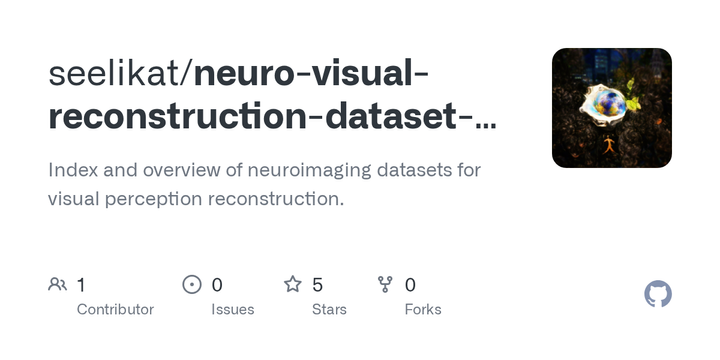
Datasets for Reconstructing Visual Perception from Brain Data
This article presents a comprehensive index of neuro-visual reconstruction datasets, providing researchers with a valuable resource to explore various datasets and their capabilities in the field of neural visual reconstruction.

Noem Can't Explain Why She Hired 8-Day-Old Company for Ad Campaign
The article explores South Dakota Governor Kristi Noem's controversial advertising campaign promoting the state's business opportunities, which has been criticized for potentially benefiting her family's businesses. The campaign's messaging and Noem's personal involvement raise questions about the ethics and transparency of her administration's approach to economic development.

Donald Trump insists there are no wind farms in China. Here are 20 in pictures
This article explores China's investment in wind farms, showcasing the country's push towards renewable energy and its efforts to combat climate change. It features impressive photographs of large-scale wind farm projects, highlighting China's technological advancements and commitment to transitioning away from fossil fuels.

Congress Is Considering Abolishing Your Right to Be Anonymous Online
The article discusses the potential impact of KOSA, a new online age verification system, on free speech and privacy. It explores the concerns raised by civil liberties advocates about the system's implications for digital privacy and the potential for censorship and chilling effects on online expression.
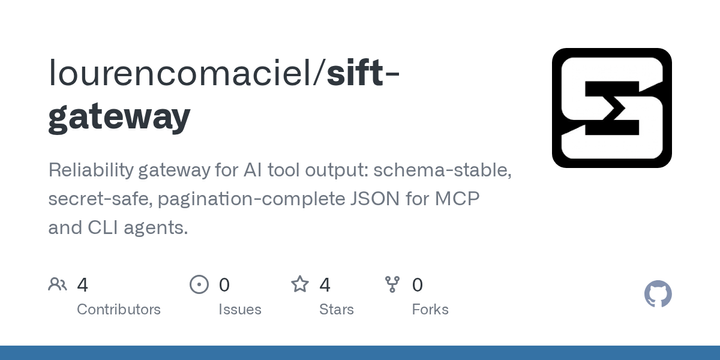
Show HN: Keep large tool output out of LLM context: 3x accuracy 95% fewer tokens
LLM agents often place raw JSON tool outputs directly in the prompt. After a few tool calls, earlier results get compacted or truncated and answers become incorrect or inconsistent.
I built Sift, a drop-in MCP gateway that stores tool outputs as local artifacts (filesystem blobs indexed in SQLite) and returns an `artifact_id` plus compact schema hints when responses are large or paginated.
Instead of reasoning over full JSON in the prompt, the model runs a small Python query:
def run(data, schema, params):
return max(data, key=lambda x: x["magnitude"])["place"]
Benchmark (Claude Sonnet 4.6, 103 questions across 12 datasets):
- Baseline (raw JSON in prompt): 34/103 (33%), 10.7M input tokens
- Sift (artifact + code query): 102/103 (99%), 489K input tokens
Open benchmark + MIT code: https://github.com/lourencomaciel/sift-gateway
Install:
pipx install sift-gateway
sift-gateway init --from claude

The yoghurt delivery women combatting loneliness in Japan
The article explores how a group of women in Japan are combating loneliness in their communities by delivering yogurt to elderly residents, providing not just a daily food delivery but also a social connection and a way to check on the well-being of the elderly.

Major airline bans 'barebeaters' across all 24 daily flights from UK airports
A major airline has banned 'barebeaters' from 24 daily flights across UK airports, citing concerns over passenger comfort and safety. The policy aims to ensure a more uniform and professional appearance for cabin crew.

Explore Financial Disclosures from President Trump and 1,500 of His Appointees
This article by ProPublica examines the financial disclosures of members of President Trump's team, providing insight into their personal financial holdings and potential conflicts of interest.
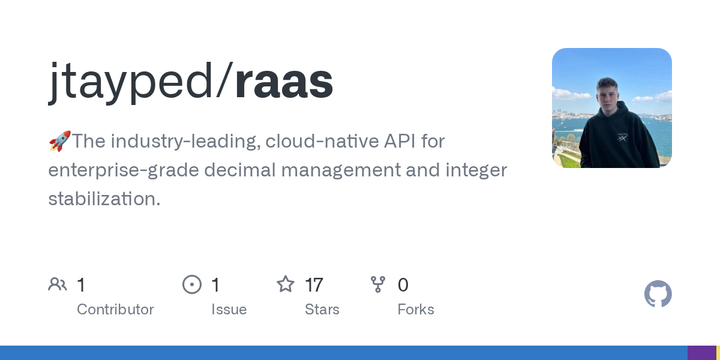
RasS (Rounding-as-a-Service)
The article details the development of a Rust-based 'Ransomware-as-a-Service' (RaaS) platform, which allows users to create and deploy customized ransomware attacks. The platform provides a range of features for managing and distributing ransomware payloads, with the goal of exploring the technical aspects and security implications of such a system.

What to Put in a Claude Code Skill for Reviewing Your Team's Code
The article provides a detailed review of the AI language model Claude, highlighting its capabilities in natural language processing, content generation, and task-oriented assistance. It explores the model's performance across various use cases, its strengths and limitations, and its potential impact on the future of AI-powered applications.

Show HN: Hormuz Crisis Dashboard Real-time shipping disruption tracker
Built this in ~4 hours with zero coding background. Tracks a few economy angles of the largest acute shipping disruption since WWII.

BBC says 'irreversible' trends mean it will not survive without major overhaul
The article discusses the upcoming BBC charter renewal, which could lead to a major overhaul of the public broadcaster's funding and structure, including potential changes to the TV license fee and the BBC's independence.

Gulf insurance costs soar 12-fold despite US president's guarantee
The article explores the potential impact of artificial intelligence on the job market, highlighting concerns about job losses and the need for governments to address the challenges posed by AI-driven automation. It emphasizes the importance of rethinking education and training to prepare the workforce for the changing job landscape.